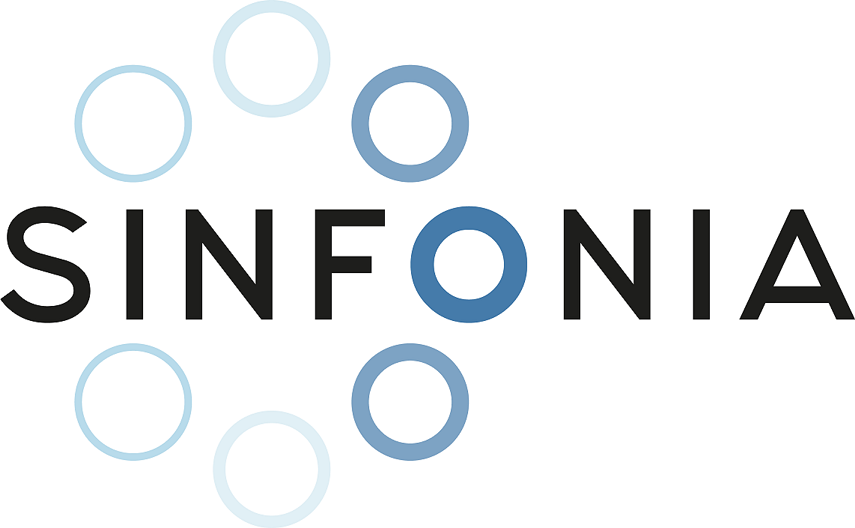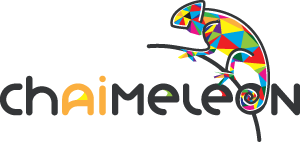Editorial
Dear EIBIR members, partners and supporters,
In 2024, EIBIR further solidified its reputation as a quality label for biomedical imaging research. By fostering collaboration among researchers from diverse disciplines, we continued to break new ground in biomedical imaging.
To guide our strategic direction, the EIBIR Scientific Advisory Board initiated a series of strategic discussions and launched survey initiatives aimed at refining both EIBIR’s long-term strategy and the Scientific Research Agenda (SRA). These efforts have focused on prioritising key research areas to ensure alignment with emerging challenges and opportunities in biomedical imaging and with forthcoming EU work programmes and 10th Framework Programme for Research and Innovation.
We have continued helping researchers to secure funding for their innovative research ideas. One new EU-funded project and one tender project have been recently awarded and will commence soon. 14 other projects are progressing, 3 successfully concluded, and 4 new projects recently submitted and under evaluation. We are already preparing new proposals for submission in early 2025.
Our communication with our shareholders and industry partners has significantly expanded through regular bilateral meetings. To showcase to a broader audience what EIBIR and its projects can offer we launched the EIBIR-ESR webinar series, starting with a session on Advancements in Cancer Imaging. The first edition in May attracted 700 professionals. Building on this success, we are excited to bring you more webinars in 2025.
You have probably noticed EIBIR’s growing presence on social media and other platforms this year. Our social media community has grown close to 3000 followers. Videos with interviews from EIBIR’s partners have reached over 48,000 views. If you have not already done so, take a moment to enjoy the testimonials of EIBIR supporters on our website and social media. We presented EIBIR at major congresses, including EANM, EORTC, CIRSE and ESMRMB. Those of you who attended ECR 2024 may have visited the amazing EIBIR booth and attended insightful EIBIR sessions showcasing our projects. For ECR 2025, the EIBIR community will again be very active so we hope to welcome you in our sessions where many of our projects will be featured and at our booth where for the first time young scientists will step onto the EIBIR stage, showcasing their innovative research to a global audience.
Our journey forward will be shaped by your needs and the synergies we create together.
EIBIR is committed to fostering even deeper collaborations, enhancing communication, and ensuring that we remain at the forefront of biomedical imaging research. Whether you are a valued partner, shareholder, expert or dedicated member, your collaboration fuels our continuous improvement, change, and growth every year. On behalf of the entire EIBIR team, I can say that we all look forward to seeing our partnership continue in 2025 and beyond.
This Annual Report highlights our key activities and achievements over the past year, showcasing the impact of collaborative research in advancing medical imaging and radiology. We hope you find it both informative and inspiring, offering a glimpse into the meaningful work we undertake. If you also want to be a part of this success, I encourage you to contact us so we can assist you with submitting your research proposal and with becoming part of our network of scientific excellence.
Sincerely,
Regina Beets-Tan
EIBIR Scientific Director
Our services
At EIBIR, we provide expert support for grant proposal preparation, professional project management, and communication and dissemination services for projects applying to European funding schemes. Our team has a proven track record in managing projects funded by programs such as Horizon Europe, Digital Europe, EU4Health and IHI.
EIBIR supports projects aimed at advancing diagnosis, treatment and disease prevention in biomedical imaging. We actively foster research networking, collaborative initiatives, and interoperability within the biomedical imaging field. Over recent years, EIBIR has helped shape the landscape of European biomedical imaging research by securing funding and supporting scientists in achieving their project goals. We believe that high-level project management is required to ensure the successful accomplishment of every project’s goals. Our services ensure optimal conditions for researchers to develop their projects by relieving them from all related administrative and management work.
Proposal writing expertise
EIBIR specialises in developing competitive project proposals. Our team understands the European Commission’s requirements for each section of a research proposal, making EIBIR a valuable partner in preparing funding applications. We assist with drafting, finalising budgets, and forming consortia by identifying suitable partners from academia, industry or SMEs. One of the main advantages of working together with EIBIR is the opportunity to benefit from the expertise of our Scientific Advisory Board. It consists of 35 international experts from various specialties who can provide critical scientific feedback on your project ideas.
Professional project management and support
Once your research proposal is funded, we offer professional coordination, project management, communication and dissemination services for research projects and clinical studies. EIBIR is a reliable partner in navigating the regulations of Horizon Europe, EU4Health, IHI, Digital Europe and other funding schemes, making compliance straightforward and accessible. This allows you the freedom to focus on achieving your project’s objectives. We recognise the demands on researchers’ time. By managing the administrative and operational responsibilities, we enable you to concentrate on the scientific aspects of your work, confident that your project is in capable hands.
| Service | Description |
| Proposal preparation support | Submission of project idea and pre-proposal check, consortium formation and communication, proposal writing and budget planning, document polishing & editing, submission to European Commission |
| Project management | Grant and consortium agreement preparations, regular European Commission project reporting, financial management of your project, communication and dissemination |
| EIBIR Electronic Data Capture Platform | The EIBIR Electronic Data Capture (EDC) Platform can be used to collect and manage almost any type of digital data that is part of your biomedical research — from numerical values or text to DICOM images. |
| EIBIR Joint Initiatives | Participate in EIBIR’s interdisciplinary groups that work towards a biomedical imaging research goal or start a new joint initiative related to your field. |
| EIBIR Scientific Advisory Board | Have your institution represented on our Scientific Advisory Board and help shape the future of biomedical imaging research (Candidates are subject to approval procedure by the current EIBIR shareholders before appointment). |
| EIBIR Dissemination Support | Send us updates and news from your research and we will share it via our online and social media channels. |
| EIBIR Members Bulletin | We provide regular updates on expected funding calls to give you a head start on your proposal preparation. This service gives our members an early indicator of the funding opportunities available to them, which also gives them a crucial advantage in proposal preparation. |
Flexible pricing
Our range of support services can be accessed via three service package categories at affordable, flexible pricing. As a non-profit organisation, EIBIR aims to boost the success of biomedical imaging research in the European funding landscape by providing crucial support services. To fully benefit from our services, you can become part of the EIBIR Network for a reasonable annual fee. For proposal preparation only, we now offer alternative pricing options including a success fee of 1.5% of the total requested project budget. For more information on the available pricing options, please contact our office.
| Service package fee per calendar year per institution | €1000 | €200 | €100 |
| EIBIR Proposal Preparation support, consortium building and project management (full proposals, stages 1 and 2) | ✓ | ||
| EIBIR Proposal Preparation support, consortium building and project management (first stage only) | ✓ | ✓ | |
| EIBIR Network Consortium Building | ✓ | ✓ | ✓ |
| EIBIR Electronic Data Capture Platform | ✓ | ✓ | |
| EIBIR Joint Initiatives | ✓ | ✓ | |
| EIBIR Scientific Advisory Board1 | ✓ | ✓ | |
| EIBIR Dissemination Support2 | ✓ | ✓ | ✓ |
| EIBIR Members Bulletin | ✓ | ✓ | ✓ |
| EIBIR Network Database | ✓ | ✓ | ✓ |
1Please note that this is conditional on the approval of EIBIR’s shareholders
2Please note that EIBIR cannot guarantee that every update or news item sent to it can be published via its dissemination & communication channels
About us
Drawing on the expertise of our Scientific Advisory Board, insights from our multidisciplinary shareholder groups, guidance from the European Society of Radiology Research Committee, and recommendations from our industry panel, EIBIR benefits from a robust and multifaceted organisational structure. This structure enables EIBIR to remain a key player at the cutting edge of research activities in the field of biomedical imaging.
You can read more about EIBIR and its structure here.
Scientific Advisory Board
Our Scientific Advisory Board (SAB) sets and guides EIBIR’s long-term strategy and goals for biomedical imaging research. It also provides invaluable expert advice and feedback to EU consultations and research proposals. In 2023, the SAB met twice to discuss EIBIR’s strategy for future research calls and to brainstorm on new ideas that can better serve researchers and further promote the role of biomedical imaging in European research.
Scientific Director
Professor Regina Beets-Tan is Director of Imaging Innovation Research at The Netherlands Cancer Institute in Amsterdam, full professor of radiology at the University of Maastricht and adjunct professor of abdominal and oncological radiology at the University of Southern Denmark. She is also a past-president of the European Society of Radiology and former member of the European Commission’s mission board on cancer.
Shareholder representatives
Maria Argyropoulou – ESPR
Oliver Díaz – EuSoMII
Patricia Figueiredo – ESMRMB
Perry Frederick – COCIR
Karen Knapp – EFRS
Michel Koole – EANM
Frédéric Lecouvet – EORTC
Philippe Pereira – CIRSE
Marion Smits – ESR
Dimitris Visvikis– EFOMP
JI directors
Aad van der Lugt – EIBALL
Christoph Hoeschen – EURAMED
Simonetta Geninatti Crich & Amnon Bar-Shir – Preclinical imaging
Georg Langs – AI for medical imaging
Maria Argyropoulou – Paediatric radiology
Francesco Sardanelli – EuroAIM
Regular members
Fabian Bamberg
Magnus Båth
Linda Chaabane
Clemens Cyran
Nandita de Souza
Ferdia Gallagher
Horst Hahn
Karim Lekadir
Luis Marti-Bonmati
Konstantin Nikolaou
Anders Persson
Antonio Pifferi
Ivo Schoots
Steven Sourbron
Daniel Truhn
Irene Virgolini
Derya Yakar
Shareholders
EIBIR’s shareholder organisations exemplify the importance of a multidisciplinary approach in biomedical imaging research. Their support is vital to EIBIR’s decision making.
 |
European Society of Radiology www.myesr.org |
 |
Cardiovascular and Interventional Radiological Society of Europe www.cirse.org |
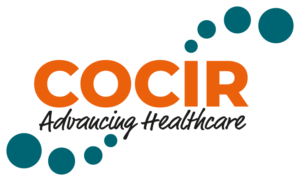 |
European Coordination Committee of the Radiological, Electro- medical and Healthcare IT Industry www.cocir.org |
 |
European Association of Nuclear Medicine www.eanm.org |
 |
European Federation of Organisations in Medical Physics www.efomp.org |
 |
European Federation of Radiographers Society www.efrs.eu |
 |
European Organisation for Research and Treatment of Cancer www.eortc.org |
 |
European Society of Paediatric Radiology www.espr.org |
 |
European Society for Magnetic Resonance in Medicine and Biology www.esmrmb.org |
 |
European Society of Medical Imaging Informatics www.eusomii.org |
Industry panel
The Industry Panel allows EIBIR and its member industry organisations to identify shared interests and opportunities for collaboration.
The cost for membership packages ranges from €10,000 for Gold, €5,000 for Silver and €1,000 for SMEs. Industry Partners benefit from EIBIR services according to their varying financial commitment.
The long-standing commitment of EIBIR’s industry partners have allowed projects such as the MIPA study, and EIBIR looks forward to enhanced cooperation in the coming years.
Gold industry member
 |
 |
 |
SME industry members
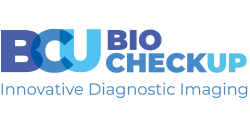 |
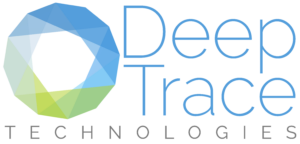 |
 |
 |
 |
EIBIR Team
We are a professional team with significant experience in the field of biomedical imaging research funding, extensive knowledge of the European Commission requirements and European research landscape.
 |
Mag. Monika Hierath Executive Manager |
 |
Peter Gordebeke, MSc
Project Manager |
 |
MMag. Katharina Krischak, BA
Project Manager |
 |
Ulrike Mayerhofer-Schirmer, MA
Project manager |
 |
Eszter Geary-Balasz Project Manager |
 |
Ancor Armas Martin Project Manager |
 |
Agnieszka Skwara
Project Manager |
 |
Coline Mathonier
Junior Project Manager |
 |
Valentina Belmar Erilkin
Junior Project Manager |
 |
Nathan Peld Project Assistant |
The EIBIR network
We are thankful for all the organisations and individuals who have recognise the importance of being involved and have helped our EIBIR network grow. We invite institutions from various fields interested in biomedical imaging to join us and support bottom-up efforts and active involvement.
Comprising 51 institutions from 20 countries, our network includes universities, research organisations, hospitals, large industries, and small and medium-sized enterprises involved in various areas related to imaging.
| Network statistics as of 31/12/2024 | |
| Active service package | 27 |
| Regular service package | 21 |
| Associate service package | 3 |
| Total | 51 |
Joint Initiatives
EIBIR supports Joint Initiatives (JIs) in setting up a new research-oriented community of scientists. The EIBIR JIs represent interdisciplinary groups working towards a common bioimaging-focused research goal strengthen the JI’s specific research area.
In 2024, EIBIR supported six JIs with specific activities, including the coordination of collaborative research efforts, communication and dissemination of research results or announcements, and the organisation of workshops, meetings and training.
- AI for medical imaging
- Preclinical imaging
- European Network for the Assessment of Imaging in Medicine (EuroAIM)
- European Alliance for Medical Radiation Protection Research (EURAMED)
- European Imaging Biomarker Alliance (EIBALL)
- Paediatric Radiology
START YOUR OWN JOINT INITIATIVE
To start a JI within EIBIR, a written concept describing the group’s aims, goals and mission is to be presented to our Scientific Director. It should include the name of the future Director of the JI, potential members and ideas for activities for the coming year.
The application will be reviewed by the Scientific Director and the EIBIR Scientific Advisory Board (SAB). After positive feedback from the Scientific Director and the SAB, the JI and its Director have to be formally appointed by the EIBIR shareholders during the annual EIBIR General Meeting, normally held on the occasion of the annual European Congress of Radiology.
The JI Director becomes an ex officio member of the EIBIR SAB. During meetings of the SAB, the JI Director reports on the JIs activities and presents the strategic goals for the upcoming year(s).
Following formal establishment, the JI Director invites potential members of the JI. We can help you in advertising the new JI by sending out information in our newsletters and distributing it to our shareholders. The overall goals and aims are consolidated in a kick-off meeting of the JI, in which the strategic course of action and responsibilities of the JI Director and JI members are defined.
EIBIR will offer administrative support to the JI Director, however, there is no additional financial support available for the directors or members unless provided within specific projects. All JIs will benefit through the EIBIR networking opportunities and collaboration in research projects.
EuroAIM
In 2024, EuroAIM achieved several milestones, including the publication of:
- A survey exploring the perceptions and impact of AI among European Society of Radiology members (Zanardo M, Visser JJ, Colarieti A, Cuocolo R, Klontzas ME, Pinto Dos Santos D, Sardanelli F; European Society of Radiology (ESR). Impact of AI on radiology: a EuroAIM/EuSoMII 2024 survey among members of the European Society of Radiology. Insights Imaging. 2024 Oct 7;15(1):240. doi: 10.1186/s13244-024-01801-w);
- A patient-matched analysis from the MIPA study on the breast MRI’s influence on surgical outcomes for DCIS (Cozzi A, Di Leo G, Houssami N, Gilbert, …, Sardanelli F. Preoperative breast MRI positively impacts surgical outcomes of needle biopsy-diagnosed pure DCIS: a patient-matched analysis from the MIPA study. Eur Radiol. 2024 Jun;34(6):3970-3980. doi: 10.1007/s00330-023-10409-5;
- A systematic review on the environmental impact of radiology (Roletto A, Zanardo M, Bonfitto GR, Catania D, Sardanelli F, Zanoni S. The environmental impact of energy consumption and carbon emissions in radiology departments: a systematic review. Eur Radiol Exp. 2024 Feb 29;8(1):35. doi: 10.1186/s41747-024-00424-6).
Furthermore, EuroAIM advanced the critical appraisal of healthcare guidelines with ongoing evaluations of COVID-19 management and hybrid cardiac imaging in nuclear medicine using the AGREE II tool. A new survey investigating the roles and perspectives of European radiographers was also initiated, emphasizing EuroAIM’s dedication to fostering interdisciplinary collaboration and driving innovation in medical imaging.
Preclinical Imaging
In order to improve visibility of preclinical imaging we take into consideration many workshops or conferences that can be of interest to both chemists developing new imaging probes and the radiologists as end users in order to promote collaboration across these traditionally separate domains. The objective is to identify opportunities where chemists and radiologists can interact meaningfully, sharing insights that lead to both technological innovation and enhanced clinical applicability. For the moment we have found an interesting initiative that will be organised in Turin, IT, in 2026 entitled Future of Molecular MR Imaging that can be supported by EIBIR. We will also look for other initiatives.
EURAMED
EURAMED advanced the field of medical radiation protection in 2024 through its own initiatives and as part of the MEENAS consortium of radiation protection research platforms, PIANOFORTE initiative and European Radiation Protection Week conference. A new body, the International Affairs and Implementing Clinically Relevant Research Committee, advocated the adoption of results from the EURAMED Rocc-n-Roll project Strategic Research Agenda and European Research Roadmap in meetings and events with EC personnel. The committee also deepened cooperation with MELODI and ESTRO through working groups focused on common interests.
EURAMED presented its own Strategic Research Agenda in April as part of this year’s MEENAS series and looks forward to participating in next year’s as well, in addition to representing its research interests among the partnering platforms. Input was also provided to plan European Radiation Protection Week 2024 in Rome, which included two sessions on selected medical radiation protection research, a statement on the situation in Ukraine from the perspective of medical radiation protection research, a session on EU programmes and synergies, and a session on how AI is revolutionising radiation protection. The conference also featured the presentation of the EURAMED award, which was granted for excellent research by an author from the Biomedical Research Center of the Slovak Academy of Sciences.
Concerning research projects, EURAMED participates in the PIANOFORTE initiative with support for Otto von Guericke University Magdeburg as an active affiliated entity. The EURAMED Scientific Committee helped develop the 2nd and 3rd open research calls in 2024 and, to help guide future research opportunities, submitted input to a call regarding Euratom’s research and training programme and proposed extension to 2026–27.
Highlights of 2024
EIBIR demonstrated some high-value projects among its ongoing work at the European Congress of Radiology 2024 while helping to deliver funding for valuable studies in radiology and beginning three new projects under the Horizon Europe, EU4Health and SAMIRA action plan schemes.
ECR 2024
At ECR 2024, EIBIR contributed significantly to advancing discussions on key research initiatives by organizing a series of project-focused sessions, highlighting our collaborations and achievements across European biomedical imaging projects. We showcased the European Commission’s SAMIRA initiative, where projects like EURAMED rocc’n’roll, SIMPLERAD, and MARLIN presented their work on strengthening quality and safety in imaging. Additionally, a dedicated session on February 29 explored the pioneering role of artificial intelligence (AI) in health imaging, with CHAIMELEON, EuCanImage, INCISIVE, ProCancer-I, and EUCAIM projects sharing progress on cancer image repositories for improved diagnosis and analysis. Later that day, the SOLACE project led discussions on implementing lung cancer screening programs across Europe, underscoring the importance of accessible, early detection initiatives.
In another session on March 1, EIBIR featured the SINFONIA project, which delves into innovative tools for comprehensive risk assessment in radiology, supporting improved diagnostic safety and patient outcomes. Projects HyperProbe and Med-IPUT also presented their advancements in integrated photonics in medical imaging, showcasing the potential of cutting-edge technology to enhance diagnostic capabilities. On March 2, we introduced attendees to the ESR Research Seed Grant Global scheme, spotlighting early-stage projects poised for future impact, followed by a special presentation on the EUCAIM infrastructure, highlighting its role in leading European radiology into the AI-driven future.
EIBIR also facilitated insightful interviews at ECR Studio, where our Scientific Director, Prof. Regina Beets-Tan, provided an overview of EIBIR’s approach to navigating European funding opportunities. In her session, she discussed how the organization aligns its research objectives with EU priorities and maximizes support for impactful projects. Dr. Esther Bron discussed the groundbreaking release of the EUCAIM platform and its transformative potential for AI in cancer research, while Prof. Helmut Prosch highlighted the SOLACE project’s efforts in creating comprehensive lung cancer screening guidelines across Europe. These interviews offered attendees a closer look into EIBIR’s mission to drive impactful research and improve health outcomes in Europe.
EIBIR at ECR 2025
- During ECR 2025, February 26 – March 2, we welcome all to take part in the varied EIBIR sessions and demonstrations, which will cover many important research topics and present the achievements of ongoing projects. Topics, times and access details can be found on this news post.
Three new projects!
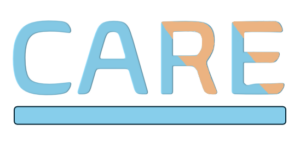 CARE
CARE
EIBIR will lead a consortium of experts from EFOMP, EARL and ESR for the new EC tender “SAMIRA Study on criteria for acceptability of medical radiological equipment.” This project, known as CARE, will run until November 2026. The consortium aims to update the criteria for acceptability of medical radiological equipment, given technological and regulatory changes in diagnostic radiology, nuclear medicine and radiotherapy since the 2012 publication of Radiation Protection Series N° 162. Updating this publication supports Council Directive 2013/59/Euratom, which mandates that Member States establish criteria for the acceptability of medical radiological equipment, and helps ensure high standards of safety and effectiveness are maintained in medical radiological practices. Scientific coordination is provided by EFOMP member Dr. Marco Brambilla of the University Hospital of Novara, Italy, and more project information can be found on the project page.
CLAUD-IT
 The EU4Health CLAUD-IT project supports EU Member States in implementing clinical audits in radiology and nuclear medicine to improve the quality and safety of healthcare. It will pilot clinical audits in 9 EU Member States, starting with 11 hospitals and then expanding to a further 3-6 institutions in each participating country. The project, supported by the European Society of Radiology and the European Association of Nuclear Medicine, will use a phased approach and will train over 250 professionals through a train-the-trainer model to ensure further implementation of clinical audit in Europe. CLAUD-IT will also develop nuclear medicine guidelines and expand existing radiology guidelines based on the European Society of Radiology’s ESPERANTO for Radiology. All materials will be made available through an online repository, providing an open access one-stop-shop for clinical audit resources in radiology and nuclear medicine. The project has been launched on the 1st of September 2024 and will run for three years. During the first months, the Consortium has already meet at the kick-off meeting in Barcelona. Additionally, CLAUD-IT has been featured at the EANM2024 and presented on partners’ websites. Moreover, internal management bodies have been set up, and project management handbook prepared. Consortium has also begun communicating about the project through an official LinkedIn profile.
The EU4Health CLAUD-IT project supports EU Member States in implementing clinical audits in radiology and nuclear medicine to improve the quality and safety of healthcare. It will pilot clinical audits in 9 EU Member States, starting with 11 hospitals and then expanding to a further 3-6 institutions in each participating country. The project, supported by the European Society of Radiology and the European Association of Nuclear Medicine, will use a phased approach and will train over 250 professionals through a train-the-trainer model to ensure further implementation of clinical audit in Europe. CLAUD-IT will also develop nuclear medicine guidelines and expand existing radiology guidelines based on the European Society of Radiology’s ESPERANTO for Radiology. All materials will be made available through an online repository, providing an open access one-stop-shop for clinical audit resources in radiology and nuclear medicine. The project has been launched on the 1st of September 2024 and will run for three years. During the first months, the Consortium has already meet at the kick-off meeting in Barcelona. Additionally, CLAUD-IT has been featured at the EANM2024 and presented on partners’ websites. Moreover, internal management bodies have been set up, and project management handbook prepared. Consortium has also begun communicating about the project through an official LinkedIn profile.
ENDOMIX

The ENDOMIX project, launched on January 1, 2024 and running until December 31, 2027, aims to unravel the health impacts of endocrine-disrupting chemical (EDC) mixtures on human health and reproduction.
This year, ENDOMIX established its project website, visual identity, and online presence, ensuring clear communication and outreach. Additionally, the ENKORE cluster – encompassing ENDOMIX and its sister projects – now display a unified visual identity and active social media channels. Dissemination strategies for both the project and cluster have been developed to strengthen engagement with scientific and public audiences.
Key achievements to date include the creation of a comprehensive list of over 5,000 chemicals, which is currently being cross-checked with cohort data. ENDOMIX has also set up its Scientific Advisory Board, providing expert guidance to ensure the project’s success.
By the end of 2024, ENDOMIX achieved important milestones:
- Delivering data on immunotoxic/immunomodulatory chemical mixtures in blood from in silico modelling and analytical confirmation to prioritise mixtures.
- Providing prioritised mixtures to Work Packages 3 and 4 for further investigation.
With a strong start and ambitious goals ahead, ENDOMIX is ready to make significant contributions to the understanding and regulation of EDC mixtures, safeguarding human health.
ESR Research Seed Grants
Spearheaded by the European Society of Radiology (ESR) in partnership with the European Institute for Biomedical Imaging Research (EIBIR), the ESR Research Seed Grant programme continues to champion small-scale, high-potential projects in radiology that serve as the foundation for larger, transformative studies. This initiative underscores the ESR’s commitment to providing researchers with the resources to explore novel ideas, generate pilot data, and position their work for further development and funding.
In 2024, the ESR Research Seed Grant Global projects, supported by Siemens Healthineers, continued to advance. At ECR 2024, the grantees of the global initiative presented the interim results of their projects during a dedicated session. These studies demonstrate how small-scale research can tackle pressing challenges such as improving outcomes for hepatocellular carcinoma patients in Tanzania, evaluating the safety and effectiveness of interventional radiology training in Uganda, and establishing standardized protocols for mechanical thrombectomy in Croatia. The final results of the projects are expected to become available in early 2025.
In addition to the European focus, the ESR Research Seed Grants Global initiative is designed to foster small pilot projects in Eastern Europe, Central Asia, and Africa. This funding scheme emphasises the importance of addressing regional healthcare needs while laying the groundwork for scalable and impactful research.
For the 2024 ESR Research Seed Grants, the ESR and EIBIR called for proposals in two key areas of radiology research: Contrast-enhanced Imaging, and Imaging Surveillance in Cancer Treatment. This call attracted 55 applications from 19 European countries, reflecting the interest in advancing these fields. After a detailed evaluation by 22 international experts, 9 standout proposals were selected for funding. These projects are now underway, with the aim of generating findings that can serve as a springboard for future, larger-scale studies. The 9 awardees and their research projects can be viewed here.
Our projects
We are proud to support more than 220 partners from over 30 countries researching various forms of cancer and neurological disorders, and developing novel imaging technologies.
The SINFONIA project
The 48-month SINFONIA project concluded at the end of August 2024. It addressed critical shortcomings in radiation dosimetry and risk assessment within the medical field. Specifically, it sought to overcome the limitations of current methods for estimating personalized, organ-specific doses in X-ray imaging examinations, which are essential for accurate risk appraisal. The project also developed AI-powered tools, enabling personalized dosimetry in routine clinical practice, and novel methodologies for accurately estimating the dose received by patients from nuclear medicine (NM) procedures and radiation therapy (RT). SINFONIA conducted research on individual sensitivity to radiation and susceptibility to second malignant neoplasms (SMNs) for risk appraisal. Moreover, the project focused on evaluating radiation exposure for medical workers, caregivers, and the broader public and environment. Major results also include a repository for doses, images and non-imaging data; multidisciplinary education and training; and recommendations for diagnostic radiology, NM and RT, which were recently published.
The EuCanImage project
 EuCanImage will build and demonstrate a GDPR-compliant and scalable platform for leveraging large-scale, high-quality and interoperable cancer imaging datasets adequately linked to biological and health cancer data. The platform will integrate advanced capabilities and new standards to develop and validate integrative decision support systems for precision oncology with increased clinical trust and adoption. The project consortium is an experienced and ambitious academic-industrial-clinical partnership, with a proven track record in data management, responsible data sharing, cancer imaging research, and AI for personalised medicine.
EuCanImage will build and demonstrate a GDPR-compliant and scalable platform for leveraging large-scale, high-quality and interoperable cancer imaging datasets adequately linked to biological and health cancer data. The platform will integrate advanced capabilities and new standards to develop and validate integrative decision support systems for precision oncology with increased clinical trust and adoption. The project consortium is an experienced and ambitious academic-industrial-clinical partnership, with a proven track record in data management, responsible data sharing, cancer imaging research, and AI for personalised medicine.
During 2024, the EC extended the project by 12 months. As a result of this change, the consortium will continue to work on the platform and AI tools until the end of September 2025. In addition, the project has started to recruit radiologists for collective segmentation efforts, which will contribute to the study on direct analysis of the impact of an annotator on differences in AI training. In terms of dissemination, the project has been presented at conferences such as ECR and CIRSE. A new video featuring and interviewing WP2 leader Dr Maciej Bobowicz has been published on YouTube and other social media channels. In addition, the consortium organised a dedicated hands-on workshop in Rotterdam and a webinar on data repositories for AI development together with the CHAIMELEON and EUCAIM projects. This year was also groundbreaking for communication efforts, as the project launched its own showcase page on LinkedIn.
The CHAIMELEON project
The CHAIMELEON project aims to create a structured repository of health images and related clinical and molecular data for the most prevalent cancers in Europe: lung, breast, prostate, and colorectal. This EU-wide interoperable repository is designed to facilitate the development and validation of artificial intelligence tools for improved cancer management. Its key objectives include providing access to large-scale databases in line with legal and ethical requirements, establishing a quality-checked repository as a resource for AI tools, building distributed infrastructure based on existing initiatives, and exploring innovative harmonisation approaches. The project also focuses on implementing pipelines to enhance AI integrity and interpretability, validating the repository internally and externally, performing early clinical validation of AI-based solutions, and ensuring the repository’s sustainability beyond the project’s duration while fostering a large and engaged user base.
In 2024, the CHAIMELEON project reached significant milestones and participated in key events, including its presence at ECR and its promotion through webinars with EIBIR and the European Society of Radiology. Several project videos were published on the CHAIMELEON YouTube channel, providing valuable insights into the project’s progress and activities, and major activities such as the re-identification challenges and in-silico validation were completed. The project was extended by six months and is now set to conclude in February 2025, allowing additional time to achieve its goals.
The HyperProbe project
 “Transforming brain surgery by advancing functional-guided neuronavigational imaging” will develop a novel cost-effective, transportable, compact optical imaging system (“HyperProbe”) to measure brain function during surgery to achieve better guidance during brain tumour removal by 2027. It will thus critically improve surgical outcomes for patients.
“Transforming brain surgery by advancing functional-guided neuronavigational imaging” will develop a novel cost-effective, transportable, compact optical imaging system (“HyperProbe”) to measure brain function during surgery to achieve better guidance during brain tumour removal by 2027. It will thus critically improve surgical outcomes for patients.
The HyperProbe project will develop and validate a cost- effective, transportable, and easy-to-use device to be integrated with existing clinical instrumentation that is fully suitable for the operating room.
The project will significantly impact clinical practice as the consortium proposes, for the first time, a functional-imaging and machine-based decision-making approach in neurosurgery. The HyperProbe device will be the first multi-biomarker, quantitative optical imaging device and functional imaging device used in image-guided surgery to preserve brain functions and minimise the risk of postoperative neurological impairment and considerably improve the life expectancy of patients.
The project concluded its second year in September 2024. the HyperProbe consortium has made remarkable advances in the design and development of the HyperProbe1.0 system, which was later on upgraded to HyperProbe1.1. This high-performance, versatile, laboratory HSI setup for investigating novel biomarkers for glioma detection and optimisation of hyperspectral parameters has shown promising preliminary results for the clinical translation of its future prototypes. The characterisation of the systems concluded, and major results will be translated to the final device ready for clinical stuy.
Furthermore, in 2024, the project successfully completed the first reporting period and received approval from the Commission with regards to the results submitted to them in this period.
These significant advancements in the project’s first year will help the Consortium advance further and the Consortium will build on this accumulated knowledge to construct together the final device, HyperProbe2, ready for clinical study.
The i-Violin project
 i-Violin was a 24-month project (September 2022 – August 2024) co-funded by the EU, focused on enhancing the quality and safety of radiation technology for cancer diagnosis and treatment. The project, involving 10 partners from 9 countries, concluded in August 2024. It delivered two innovative web-based software tools for image quality assessment and optimisation, available at CTIQA2 and KULeuven. These tools enable the medical community to optimise oncological CT imaging for the chest, pelvis, and abdomen, fostering harmonisation across Europe. The project also highlighted the critical role of multidisciplinary collaboration among radiologists, radiographers, and medical physicists to ensure effective optimisation and patient safety.
i-Violin was a 24-month project (September 2022 – August 2024) co-funded by the EU, focused on enhancing the quality and safety of radiation technology for cancer diagnosis and treatment. The project, involving 10 partners from 9 countries, concluded in August 2024. It delivered two innovative web-based software tools for image quality assessment and optimisation, available at CTIQA2 and KULeuven. These tools enable the medical community to optimise oncological CT imaging for the chest, pelvis, and abdomen, fostering harmonisation across Europe. The project also highlighted the critical role of multidisciplinary collaboration among radiologists, radiographers, and medical physicists to ensure effective optimisation and patient safety.
The RadioVal project
 RadioVal is breaking new ground as the first international clinical validation study focused on radiomics-based prediction of treatment response to neoadjuvant chemotherapy from breast MRI. With an unwavering commitment to innovation and impact, RadioVal is building a comprehensive and standardised methodological framework for radiomics evaluation, guided by the FUTURE-AI principles of Fairness, Universality, Traceability, Usability, Robustness, and Explainability. At its core, RadioVal aims to establish a new benchmark for radiomics tools by introducing transparent and continuous evaluation and monitoring processes. Through a multi-stakeholder approach, the project has prioritised clinical and healthcare needs alongside socio-ethical and regulatory considerations from its inception. This ensures a well-rounded, patient-centric research trajectory.
RadioVal is breaking new ground as the first international clinical validation study focused on radiomics-based prediction of treatment response to neoadjuvant chemotherapy from breast MRI. With an unwavering commitment to innovation and impact, RadioVal is building a comprehensive and standardised methodological framework for radiomics evaluation, guided by the FUTURE-AI principles of Fairness, Universality, Traceability, Usability, Robustness, and Explainability. At its core, RadioVal aims to establish a new benchmark for radiomics tools by introducing transparent and continuous evaluation and monitoring processes. Through a multi-stakeholder approach, the project has prioritised clinical and healthcare needs alongside socio-ethical and regulatory considerations from its inception. This ensures a well-rounded, patient-centric research trajectory.
The first half of the project successfully laid the foundation, fostering collaboration and dialogue with clinicians, patients, AI developers, and ethicolegal experts. This phase focused on designing the evaluation study and identifying the nuanced needs of all stakeholders, ensuring a robust and practical approach. Now in its second half, RadioVal is transitioning from design to execution. The evaluation study is being conducted using real-world data sourced from eight hospitals across the globe. This pivotal phase not only tests the tools developed but also exemplifies RadioVal’s commitment to validating AI solutions in clinical practice. The active involvement of a multidisciplinary group of stakeholders remains a cornerstone of the project. Engaging clinicians, patients, and developers is critical to ensuring a shared understanding of the project’s goals and its potential impact on healthcare.
The project has also gained significant visibility on international platforms, having been presented at conferences such as ACR. Furthermore, a new video featuring Project Coordinator Oliver Diaz has been published on the project’s YouTube channel, offering insights into the team’s work and the vision driving RadioVal forward.
The SIMPLERAD project
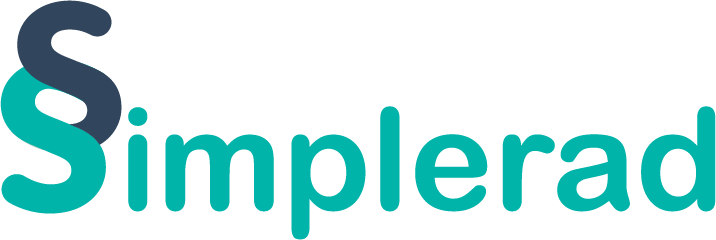
Investigating the implementation of the Euratom and the EU legal bases with respect to the therapeutic uses of radiopharmaceuticals, the SIMPLERAD project closed its activities by drafting guidelines and recommendations for coherent implementation of these legal requirements and promoting best practices and safer use, including an in-depth analysis of both the interrelations between EU pharmaceutical legislation and Council Directive 2013/59/Euratom and the SIMPLERAD survey of the implementation of European legal requirements for therapeutic nuclear medicine.
A final meeting with the EC and WP MED was held in Luxembourg in March. The changes made according to feedback during the project workshop in December 2023 were presented, and final comments prior to publication of the document were received. The final report was then evaluated by partnering organisations EANM and EFOMP before submission to the EC. Publication of the SIMPLERAD guidelines and recommendations is expected in early 2025.
The ODELIA project
 In 2024, the ODELIA project, a European project focused on developing and implementing a pan-European swarm learning network that enables privacy-preserving and democratic training of medical AI algorithms successfully continued its activities. Moreover, the first periodic reporting to the European Commission was prepared.
In 2024, the ODELIA project, a European project focused on developing and implementing a pan-European swarm learning network that enables privacy-preserving and democratic training of medical AI algorithms successfully continued its activities. Moreover, the first periodic reporting to the European Commission was prepared.
During the first reporting period the project embarked on establishing a robust decentralised platform, laying the foundation for collaborative AI model training across multiple institutions without centralised data sharing. A comprehensive manual for implementing SL on-site was compiled, encompassing hardware and software requirements, preprocessing workflows, and seamless integration into existing workflows.
The partners demonstrated the practical application of SL in breast cancer detection using MRI data, marking a significant milestone. The team released a minimal viable product, showcasing decentralised model training capabilities and its efficacy in utilising publicly available data.
A technical documentation website for ODELIA’s open-source SL implementation was set up. This site serves as a valuable resource for those looking to leverage ODELIA’s implementation for diverse use cases, promoting collaborative innovation. The documentation is openly accessible at odelia-ai.github.io.
Furthermore, strides have been made in enhancing the user experience with the development of a user-friendly front-end. This facilitates seamless data gathering for new AI model development while bridging the crucial gap to clinical usability.
First experiments of training a joint model on distributed data from three partners, and publicly available datasets have been performed.
The Med-IPUT project
 Med-IPUT is a groundbreaking project revolutionizing medical ultrasound imaging. Today, medical ultrasound faces several limitations, such as low resolution, limited penetration depth, and high acoustic peak pressures. Therefore, the MED-IPUT project will develop a high-resolution, high-quality, recyclable medical imaging system based on a disruptive integrated photonic ultrasound transducer concept. Med-IPUT transducers are expected to be up to 100 times more sensitive than current ultrasound sensors. This will be a major leap in ultrasound component performance. The project is aiming to create a new generation of ultrasound imaging sensors that are more accurate, cost-effective, and safer for patients.
Med-IPUT is a groundbreaking project revolutionizing medical ultrasound imaging. Today, medical ultrasound faces several limitations, such as low resolution, limited penetration depth, and high acoustic peak pressures. Therefore, the MED-IPUT project will develop a high-resolution, high-quality, recyclable medical imaging system based on a disruptive integrated photonic ultrasound transducer concept. Med-IPUT transducers are expected to be up to 100 times more sensitive than current ultrasound sensors. This will be a major leap in ultrasound component performance. The project is aiming to create a new generation of ultrasound imaging sensors that are more accurate, cost-effective, and safer for patients.
During the second year of the project, Med-IPUT:
- Successfully completed the 1st reporting period and two review meetings,
- Prepared a detailed system level design of IPUT demonstrators,
- Provided description of developed SOI technical building blocks and reposted on the design of SOI devices for IPUT demonstrators, and
- Provided description of developed SiN technical building blocks and reposted on the design of SiN devices for IPUT demonstrators.
Additionally, Med-IPUT has been presented during major international events, such as ECR 2024 in Vienna, Austria and IEEE UFFC-JS 2024 in Taipei, Taiwan. Additionally, Med-IPUT has prepared a second explainer video presenting achievements from the first year of the project, which was launched during the first half of 2024.
The project is coordinated by Netherlands Organisation for Applied Scientific Research (TNO), and EIBIR is in charge of the project management and dissemination tasks.
You will find more project information here: https://med-iput.eu/
The SOLACE project
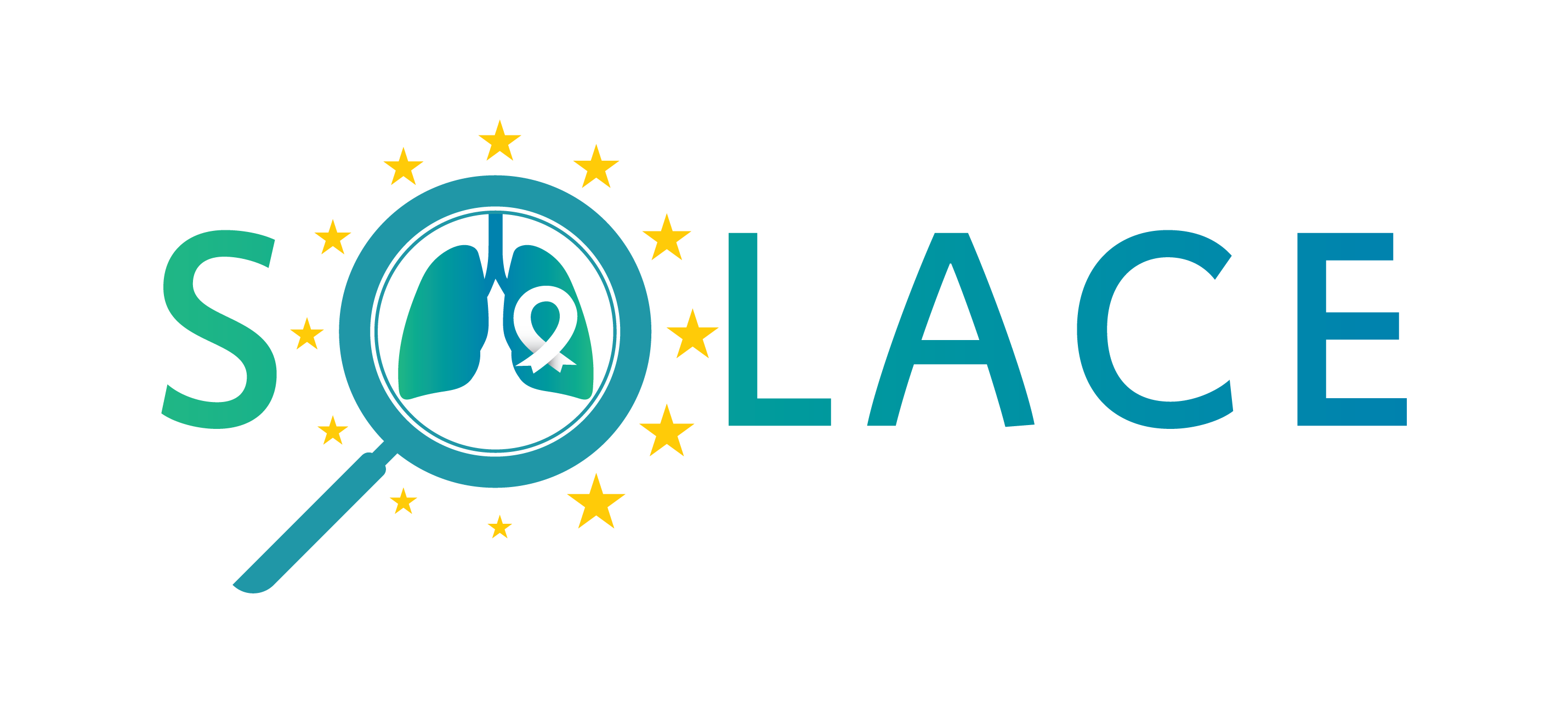
The SOLACE project (Strengthening the Screening of Lung Cancer in Europe) project, running from April 2023 to March 2026, aims to enhance participation, improve outcomes, and address health inequalities in lung cancer screening (LCS). The project unites 37 partners from 15 EU Member States in a pan-European interdisciplinary consortium. In the first 18 months, SOLACE has achieved significant milestones, including: 1) a systematic evaluation of the LCS landscape across Europe, 2) development of a comprehensive guideline and implementation package for LCS, 3) establishment of the SOLACE Knowledge Hub and Database for screening data, 4) initiation of an assessment on the benefits, harms, and cost-effectiveness of LCS, 5) targeted recruitment efforts for underrepresented groups in LCS, and 6) distribution of a survey on LCS training status across Europe.
The EUCAIM project

EUropean Federation for CAncer IMages (EUCAIM) is the cornerstone of the European Commission-initiated European Cancer Imaging Initiative, a flagship of Europe’s Beating Cancer Plan (EBCP), which aims to foster innovation and deployment of digital technologies in cancer treatment and care to achieve more precise and faster clinical decision making, diagnostics, treatment and predictive medicine for cancer patients.
The 4-year project started in January 2023 and joins 76 partners to deploy a pan-European digital federated infrastructure of FAIR cancer-related, de-identified, real-world images. The infrastructure is designed to preserve the data sovereignty of providers and provide a platform, including an Atlas of Cancer Images, for the development and benchmarking of AI tools towards precision medicine. EUCAIM will address the fragmentation of existing cancer image repositories by building on repositories from the AI4HI initiative, European research infrastructures and national/regional repositories and including clinical images, pathology, molecular and laboratory data.
For more information, visit the project’s website at cancerimage.eu.
This project receives co-funding from the European Union under grant agreement No 945196 and is active until December 31, 2026.
The MARLIN project
 Another Euratom tender project, MARLIN, progressed toward the end of its investigation of the implementation of Council Directive 2013/59/Euratom in the aim of improving reporting and learning from patient-related incidents and near misses in radiotherapy, interventional cardiology, nuclear medicine and interventional and diagnostic radiology. The consortium of experts from EIBIR, EFOMP and ESTRO spent the year finalising their report of guidelines and recommendations to improve implementation of the Directive, current practices of reporting and analysing incidents, and dissemination of lessons learned in each of the fields. The draft document was shared in consultation with important stakeholders across Europe before presentation at the project workshop in Brussels in September, where more than 100 participants learned of the consortium’s work and contributed valuable advice, experience and challenges in discussions. The workshop proceedings and presentations are available on this project webpage.
Another Euratom tender project, MARLIN, progressed toward the end of its investigation of the implementation of Council Directive 2013/59/Euratom in the aim of improving reporting and learning from patient-related incidents and near misses in radiotherapy, interventional cardiology, nuclear medicine and interventional and diagnostic radiology. The consortium of experts from EIBIR, EFOMP and ESTRO spent the year finalising their report of guidelines and recommendations to improve implementation of the Directive, current practices of reporting and analysing incidents, and dissemination of lessons learned in each of the fields. The draft document was shared in consultation with important stakeholders across Europe before presentation at the project workshop in Brussels in September, where more than 100 participants learned of the consortium’s work and contributed valuable advice, experience and challenges in discussions. The workshop proceedings and presentations are available on this project webpage.
The final report was then updated based on workshop feedback and submitted to the EC for publication in the Radiation Protection Series. A final meeting with the EC and WP MED is expected in early 2025, followed thereafter by publication.
The AI-POD project
 AI-POD’s mission is to significantly enhance the risk assessment and management of obesity-related vascular diseases. This is achieved through the development of a unique AI-based risk prediction score and Clinical Decision Support System, both grounded in comprehensive individual patient data. By combining these advanced tools with the launch of a Citizen App, AI-POD creates a fully digitalised feedback loop, integrating real-time monitoring of diet and lifestyle into standard risk assessments. This empowers both patients and clinicians, enabling more personalised and timely interventions. Through these innovations, AI-POD aims to redefine the standard of care for obesity-related diseases, with the potential to shape future treatment strategies and clinical guidelines.
AI-POD’s mission is to significantly enhance the risk assessment and management of obesity-related vascular diseases. This is achieved through the development of a unique AI-based risk prediction score and Clinical Decision Support System, both grounded in comprehensive individual patient data. By combining these advanced tools with the launch of a Citizen App, AI-POD creates a fully digitalised feedback loop, integrating real-time monitoring of diet and lifestyle into standard risk assessments. This empowers both patients and clinicians, enabling more personalised and timely interventions. Through these innovations, AI-POD aims to redefine the standard of care for obesity-related diseases, with the potential to shape future treatment strategies and clinical guidelines.
In 2024, the project has made significant progress, being featured at international events such as ECR, and welcoming two new partners to the consortium. The establishment of a dedicated Stakeholder Board further strengthens the project’s collaborative framework. Key milestones also include the successful launch of the first end-user webinar, the initiation of patient enrolment, the publication of two major research papers, and the transfer of project coordination to the Medical University of Vienna. Additionally, the release of the AI-POD Citizen App marks an exciting step forward, providing individuals with the tools to actively manage and monitor their cardiovascular health. The project has also released several informative videos on YouTube, further expanding its reach and engagement with both the medical community and the general public.
Financial report
EIBIR’s activities are financed by a number of sources, including Network and Industry Panel service package fees, support from the European Society of Radiology (ESR) and the shareholder organisations as well as EC funding for European research projects coordinated or supported by EIBIR and EIBIR project-related services provided to institutions against a fee.
A detailed annual financial report is presented to and approved by the shareholder organisations at the annual General Meeting, usually held during the European Congress of Radiology in Vienna.
At the EIBIR General Meeting held at ECR 2024 on February 28, 2024, the financial report for 2023 was approved.
| Approved financial report for 2023 | |
| Total income | €767,013.43 |
| Total expenditure | €728,427.54 |
| Operating profit | €38,585.89 |
| Total equity | €868,636.56 |
Work with us!
Have a promising research idea and planning to apply for funding? EIBIR offers expert guidance on proposal preparation, with valuable feedback from our Scientific Advisory Board—a panel of 35 leading scientists from across Europe who can help refine and strengthen your proposal.
Our proposal preparation and project management team have a proven track record of securing EU funding from various funding programmes. As a non-profit organization, we are dedicated to helping scientists across all fields bring their research ideas to life, while advancing the role of biomedical imaging research.
By subscribing to an EIBIR service package, you gain access to our full range of support services and become part of the EIBIR Network—all at a competitive rate. For those seeking proposal preparation support only, we also offer flexible pricing options, including a small success-based fee.
Here’s how EIBIR can help:
- During project preparation and application:
- Call-specific templates with detailed descriptions and input requirements
- Advice on project governance, management and work package structure, as well as consortium building
- Experienced advice and support on the crucial impact section of your proposal
- Critical reading and feedback from a team of experienced scientific writers with knowledge of European Commission requirements
- During the project:
- Project coordination and management, incl. financial and contractual activities, day-to-day management, meeting logistics, and quality assurance
- Communication and dissemination activities
Find out more about our services and get in touch with the EIBIR office to tell us about your proposal to see how we can help make your research idea a reality!

